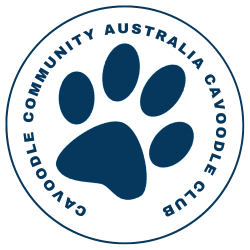Ingredients to Look For in Healthy Dachshund Food
Let’s face it—what goes into your Dachshund’s bowl directly fuels their wagging tail, shiny coat, and endless mischief. Picking the right food isn’t just about filling their stomach; it’s about nourishing every inch of that spirited sausage-shaped body. With a dizzying array of options on the shelves, it can feel like sorting through a buffet where you have to guess what’s fresh and what’s filler. Here’s how to dish out the good stuff and skip the fluff.
First Things First: Read the Label
Before tossing any bag of kibble or can of wet food into your cart, flip it over and scan the ingredients. Spot the stars of the show—high-quality proteins like chicken, beef, or fish—right at the top. If your Dachshund’s dinner reads like a mystery meat assembly line, leave it on the shelf. Their meals should sing of hearty, nutritious ingredients, not hidden fillers.
Power Up with Carbs
Carbs aren’t just filler—they’re energy boosters. Look for wholesome sources like sweet potatoes, peas, and carrots. These bring fiber to the table, helping with digestion and keeping things, well, moving smoothly. Dodge anything heavy on corn or wheat—these cheap fillers often do more harm than good, potentially riling up sensitive tummies. If your pup has allergies, grain-free might be the way to go, but always check in with your vet before making the switch.
Fat: The Unsung Hero
Don’t fear the fat—embrace it. Healthy fats, like fish oil or flaxseed oil, are liquid gold for your Dachshund. They support glossy coats, supple joints, and a robust immune system. Omega-3 fatty acids, in particular, work wonders at keeping inflammation at bay and promoting overall health. It’s like feeding your dog a spa treatment in every bite.
Don’t Forget the Vitamins and Minerals
Dachshunds can’t whip up their own vitamins, so it’s up to you to make sure their meals are packed with the essentials. Look for food loaded with vitamins A, B complex, C, D3, and E, alongside chelated minerals like zinc and copper proteinate. These are easier for their bodies to soak up, ensuring their heart, eyes, and other vital organs stay in top shape. Bonus points if the food includes antioxidants, which fend off pesky free radicals and keep your dog’s system humming along.
Skip the Artificial Stuff
Say no to synthetic colors and fake flavors. Your dog doesn’t care if their kibble is bright orange or neon green, and these extras bring nothing to the table except unnecessary risks. Stick to food made with real, natural ingredients—because your pup deserves better than a science experiment in a bowl.
Quality Control is Key
Don’t skimp on the safety checks. High-quality dog food goes through rigorous standards to ensure only the best makes it into each bag. Choose brands that prioritize safety and transparency so you know exactly what your pup is chowing down on.
The Bottom Line
Feeding your Dachshund isn’t just about filling a bowl—it’s about fueling a life full of energy, snuggles, and adventures. Load their plate with nutrient-rich, wholesome food that supports every wag of their tail. When you see that shiny coat and those bright eyes, you’ll know it was worth every effort.



